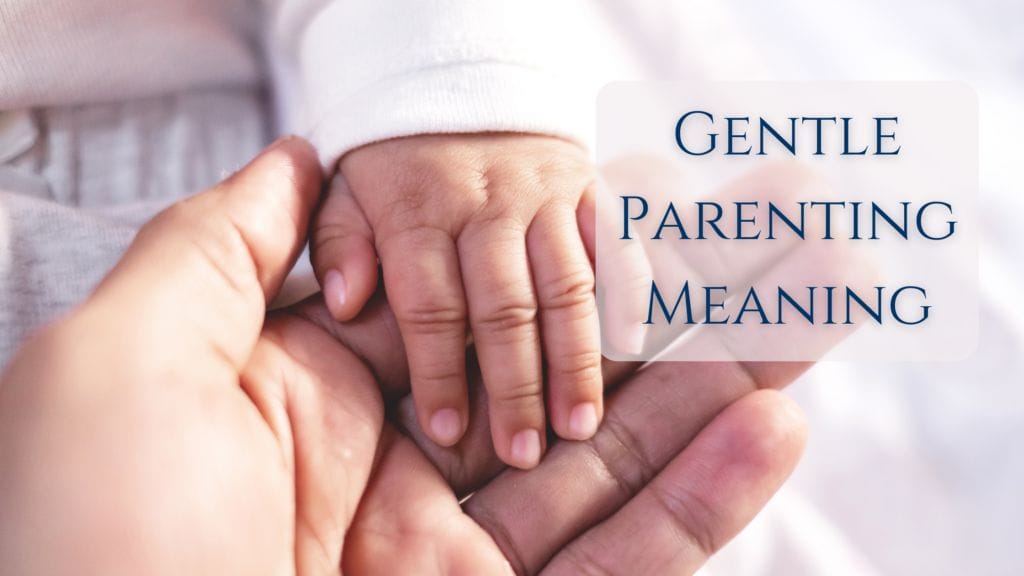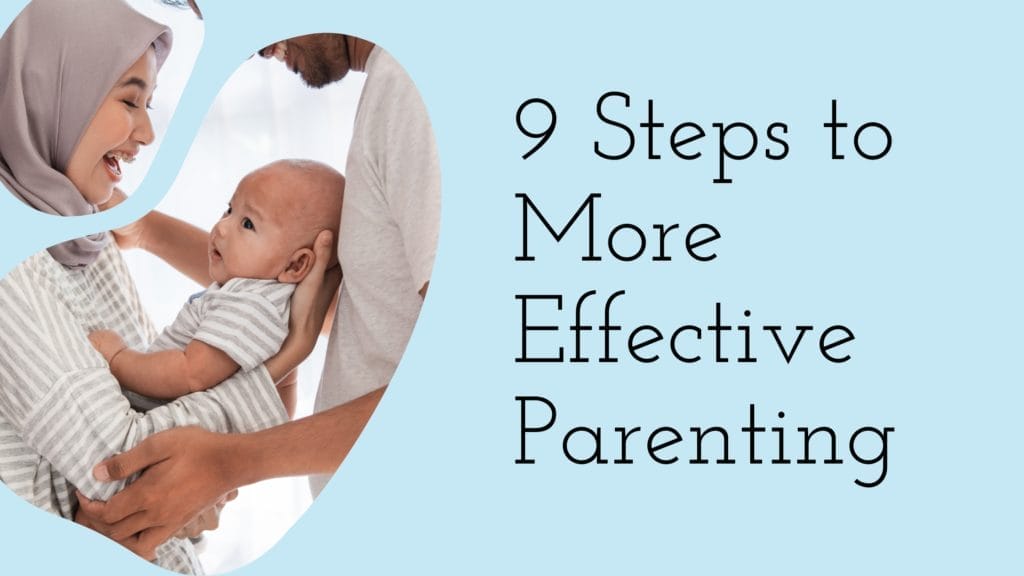
Gentle Parenting Meaning: The Islamic Way to Raising Kids
Have you ever wondered how to discipline your child without turning into a fire-breathing dragon? Or questioned whether gentle parenting in Islam is even possible when your toddler just painted the wall with yogurt? 😅
Parenting is a beautiful journey, but let’s be real—it comes with its fair share of what-just-happened moments. From sticky fingers on the furniture to bedtime battles that feel like negotiating world peace, it can be overwhelming. You might wonder: How do I get my child to listen without yelling? Is it even possible to correct behavior while still being gentle?
The good news? Gentle parenting is not about letting kids run wild. It’s about guiding them with love, patience, and boundaries—just as Prophet Muhammad ﷺ did. 💖 By following Islamic teachings and practical strategies, you can discipline your children effectively without losing your sanity (in shaa Allah!).
Let’s explore what gentle parenting really means, why it’s 100% aligned with Islam, and how you can apply it to raise emotionally intelligent, confident, and righteous children. 🌱
What Is the Meaning of Gentle Parenting?
Gentle parenting is an approach rooted in respect, understanding, and positive discipline. It prioritizes kindness, guidance, and emotional connection over yelling, harsh punishments, or bribing your child with chocolates. 🍫
In Islam, we see this approach reflected in the Sunnah. The Prophet Muhammad ﷺ said:
“Verily, Allah loves kindness in all things.” (Bukhari)
This principle isn’t just a moral ideal—it’s backed by science too! Studies show that children raised with gentle parenting tend to be more emotionally resilient, better at problem-solving, and develop stronger parent-child bonds. 🌿
Now, before you roll your eyes and say, “But my child doesn’t listen unless I go full mama-bear!”—stay with me!
Gentle parenting doesn’t mean there are no boundaries. It means setting firm but loving limits. It’s about teaching responsibility and self-discipline without fear-based tactics. When children feel secure and respected, they respond better to guidance.
For example, instead of yelling, “Stop jumping on the couch!” try, “I know it’s fun, but couches aren’t for jumping. Let’s find a safe place to play.” This small shift in approach can make a world of difference in your child’s behavior and your stress levels. 😅
The 4 Pillars of Gentle Parenting in Islam
1. Kindness & Gentleness (Even When You Step on a Lego) 🧸
It’s easy to lose patience when your child is testing limits. But Prophet Muhammad ﷺ reminded us:
“There is no kindness in a thing but that it adorns it, and it is not taken away from a thing but that it makes it defective.” (Muslim)
Parenting with kindness doesn’t mean ignoring bad behavior, but rather addressing it with wisdom and patience. The way you respond to your child’s mistakes teaches them how to handle frustration and challenges in life. If we react with anger, they learn fear. If we respond with patience, they learn self-control. 💕
So, next time your child spills juice all over the prayer mat, take a deep breath. Instead of yelling, guide them gently: “Oops! Let’s clean this up together.” This simple shift teaches responsibility while keeping your connection strong.
Even when dealing with repeated misbehavior, stay calm. Instead of, “How many times do I have to tell you?!” try, “I see you’re having a hard time remembering the rules. Let’s practice together.” This builds trust while reinforcing boundaries.
Gentleness does not mean weakness—it’s actually one of the most effective parenting tools. When your child feels safe and loved, they’re more likely to listen, cooperate, and grow into confident, compassionate individuals. 🌿
2. Setting a Good Example (They’re Always Watching, Sis!)
Children learn more from what we do than what we say. If we want them to be patient, kind, and disciplined, we need to model those behaviors ourselves.
Want your child to pray on time? Instead of nagging, let them see you pray consistently. Actions speak louder than words, and children are natural imitators. If they see you prioritizing salah, they will be more likely to follow your lead.
Similarly, if you want them to use kind words, make sure you are using kind words even in moments of frustration.
📌 Pro Tip: Use positive reinforcement. Praise them when they do something good. Instead of only correcting their mistakes, highlight their achievements: “Maa shaa Allaah, you shared your toy! Allah loves those who are kind.” This not only boosts their confidence but also encourages them to repeat good behavior.
Gentle reminders, leading by example, and reinforcing positive behaviors create a nurturing environment where children feel safe to grow. Instead of enforcing rules with fear, create a home where your child wants to do good because they feel loved, valued, and respected. 💖
3. Balanced Discipline (No Need for a Stick, Just a Strategy)
Gentle parenting does not mean letting kids run wild. It means setting firm boundaries with love, ensuring they understand expectations while feeling emotionally secure. Islam emphasizes discipline as a means of guidance, not punishment.
The Prophet ﷺ never resorted to excessive discipline but instead corrected children with wisdom and patience. He set clear boundaries while making them feel valued and respected.
If a child misbehaves, focus on logical consequences rather than harsh punishments. The goal is to teach accountability, not instill fear.
📌 Example: If your child refuses to turn off the tablet, instead of shouting, say: “You used your screen time for today. Now we put it away.” Then, stick to it! Consistency is key. If you give in, they’ll learn that persistence leads to bending the rules.
If your child throws a toy in frustration, rather than punishing, calmly say: “We don’t throw toys. Let’s take a break and try again.” Redirecting behavior helps them learn self-regulation while maintaining a peaceful home environment.
Children need to understand that actions have consequences, but these should be logical and fair—not based on parental frustration. By keeping discipline firm yet kind, we raise children who respect boundaries without resentment or fear. 🌸
4. Creating a Good Environment (Because Kids Absorb Everything!) 🌱
Surrounding your child with positive influences is key to nurturing their faith and character. Children absorb their surroundings, so ensuring a good environment is one of the best gifts you can give them.
✅ Choose good friends for them. The people they spend time with will shape their mindset and habits. Seek out friends from families who share similar values.
✅ Read Islamic stories together. Books are powerful tools for instilling good character and Islamic teachings. Choose engaging stories that reinforce kindness, honesty, and love for Allah.
✅ Limit exposure to negative content. Monitor screen time and be mindful of what they watch. Instead of cartoons with questionable messages, opt for Islamic animations or educational shows.
✅ Encourage an Islamic atmosphere at home. Make dhikr part of daily life, pray together as a family, and discuss Islamic lessons in a natural and engaging way.
If you want your child to grow up with good values, make those values part of their world. When faith is woven into their everyday lives, it becomes second nature to them.
📌 Check out this guide on talking to kids about Islam: How to Talk to Children About Islam
Common Myths About Gentle Parenting (Let’s Bust Them!)
“Gentle parenting is too soft—kids won’t listen.”
False! Gentle parenting doesn’t mean permissiveness. Instead of fear-based obedience, it fosters respect, emotional regulation, and self-discipline. Research shows that children raised with gentle discipline have better impulse control and higher emotional intelligence in the long run. When children feel heard and valued, they are more likely to listen and cooperate willingly.
“It’s un-Islamic to avoid punishments.”
Nope! Islam encourages mercy and prioritizes correction over punishment. The Prophet ﷺ never resorted to physical discipline; instead, he used gentle reminders, patience, and wisdom to guide children. The goal of discipline in Islam is to teach, not to harm. Logical consequences, heartfelt conversations, and positive reinforcement are all powerful tools that align with Islamic teachings.
“It doesn’t work with strong-willed kids.”
Actually, strong-willed children thrive under gentle parenting! They respond better to clear, consistent boundaries set with love rather than force. When children feel respected, they learn to trust their parents’ guidance. Harsh discipline often leads to power struggles, while a calm, firm approach helps children feel safe and understand limits without resentment.
Gentle parenting is not about letting kids do whatever they want—it’s about raising them with integrity, responsibility, and love. 🌸
How to Start Gentle Parenting Today (Without Feeling Overwhelmed!)
- Pause Before Reacting – If you’re about to yell, take a deep breath and choose a calmer response.
- Use Positive Language – Instead of “Don’t run!” say, “Let’s walk safely.”
- Set Clear Boundaries – Kids need limits. Make them clear and follow through.
- Be Patient with Yourself – You won’t be perfect, and that’s okay! Parenting is a journey.
- Make Du’a for Guidance – Ask Allah for patience and wisdom in raising your children.
Final Thoughts: Why Gentle Parenting in Islam Works Wonders 🌟
Islamic parenting is all about balance—compassion with discipline, patience with firmness. Gentle parenting doesn’t mean permissiveness. It means guiding our children with love, just as Prophet Muhammad ﷺ did.
Remember: Your child is an amanah (trust) from Allah. How you raise them today will shape their character tomorrow. 🌱💖
So, let’s strive to parent with kindness, wisdom, and a whole lot of du’a! 💕
For a deeper dive into Islamic parenting, check this out: How to Raise Children in Islam
💬 What’s your biggest struggle with gentle parenting? Drop a comment below—I’d love to hear from you! 😊



